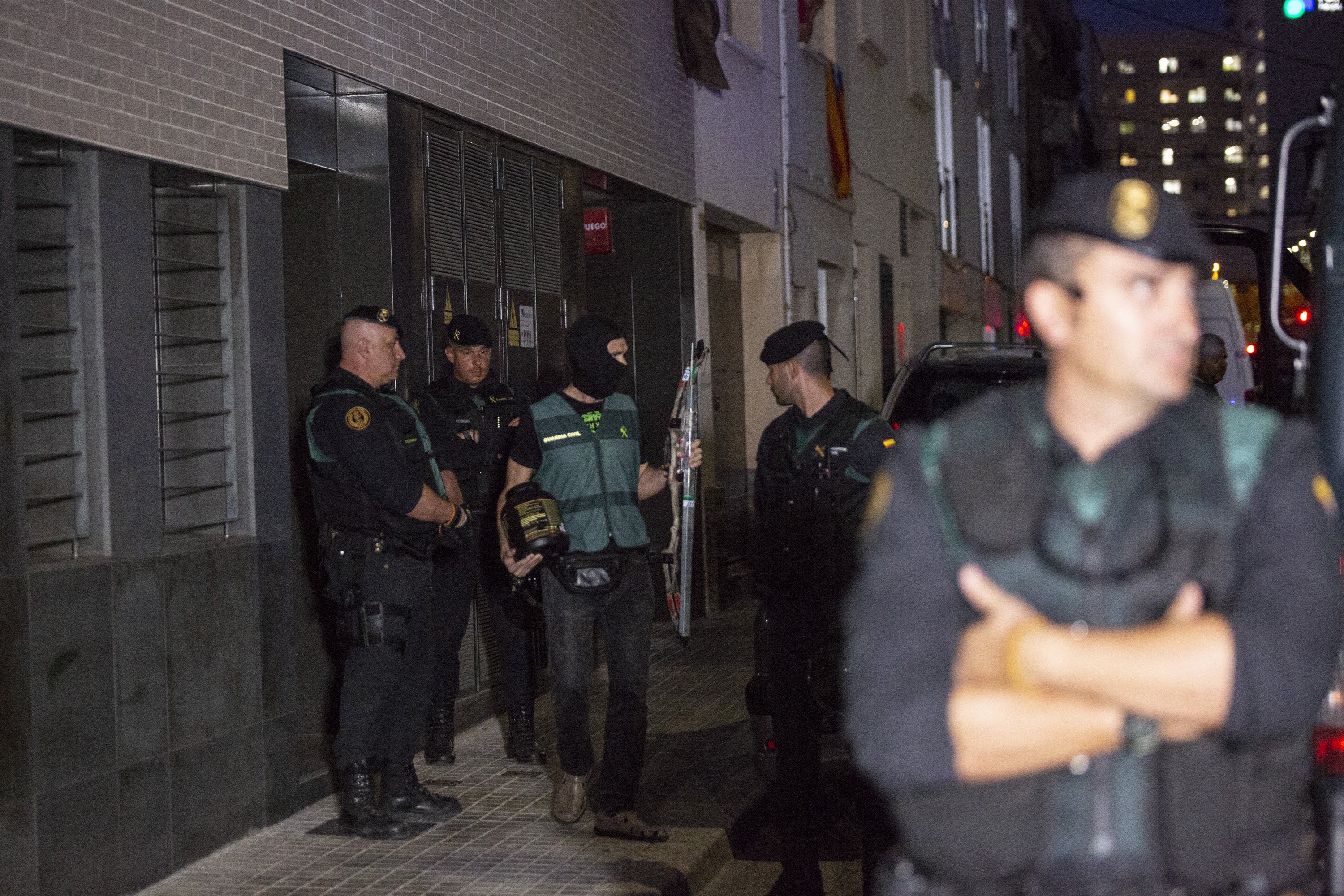Like two years ago, a large police operation has again put pressure on the Catalan independence movement ahead of expected mass demonstrations. In 2017, it was during the preparations for the independence referendum; this time for the second anniversary of that referendum and the upcoming sentences in the trial of senior pro-independence figures following it.
With a spectacular deployment of officers, evocative of those carried out in the Basque Country in the 80s against ETA, today the Civil Guard has put all its resources at the disposal of the National Audience. A judge in Madrid, Manuel María García-Castellón García-Lomas, has ordered the arrest of nine people and ten searches to be carried out around Barcelona province.
Early in the evening, after questioning two of those arrested at the Civil Guard building on Travessera de Gràcia in Barcelona, the gendarmerie released them charged with terrorism. The others have been taken straight to the Spanish capital.
The searches lasted more than 15 hours. The final one ended after 8pm with the Civil Guard taking the final detainee away from a property on carrer Antoni Cusidó in Sabadell. They were also seen taking a box and a bow and arrows from the flat. They had entered shortly before 4pm local time for a search which involved bomb disposal experts and a dog unit.
The detainees are accused of terrorism, possessing explosives and rebellion. Prosecutors specifically claim they were preparing explosives to use in the protests expected next month, describing the arrestees as a "Catalan secessionist terror group". Lawyers for those held describe it as a "new political move". Spokesperson Xavier Pellicer has told El Nacional that they do not recognise the charges of terrorism, possessing explosives or rebellion their clients are accused of. "It's the same modus operandi as in the case of Tamara and Adrià [Carrasco]". The Carrascos were activists arrested in 2018 accused of terrorism. The terrorism charge against Tamara was dropped, leaving her accused of public disorder; Adrià went to Brussels where he is currently fighting an extradition warrant.
The Civil Guard had monitored those arrested today and in some cases even conducted phone taps. In the case of Tamara, it had been a WhatsApp message that led to her arrest. This morning in Sabadell, there were also suggestions that a telephone conversation had sparked today's operation. There's also the question of the material seized. Reports suggest that some of it could be pyrotechnics from a centre associated with Sabadell's town festival. The Civil Guard also talk of "other substances" which they say need analysing by scientific police.
The seven being taken to Madrid are being treated under anti-terror legislation. That means they were taken directly to the capital, with medical check-ups in Barcelona first but no interviews: those will be carried out in Madrid by the Civil Guard. It also means they are being held incommunicado. They can be held for up to five days before they have to appear before the judge.
Three of those arrested today are also under investigation, accused of having tried to prevent the Catalan pro-independence prisoners being taken from Lledoners prison to Madrid for their trial earlier this year. Today's operation is entirely unrelated to that.
The nine are aged between 35 and 45, some of them also linked to environmental groups and pro-independence left-wing parties ERC and CUP. Two of them, from Sabadell, are married with children.

